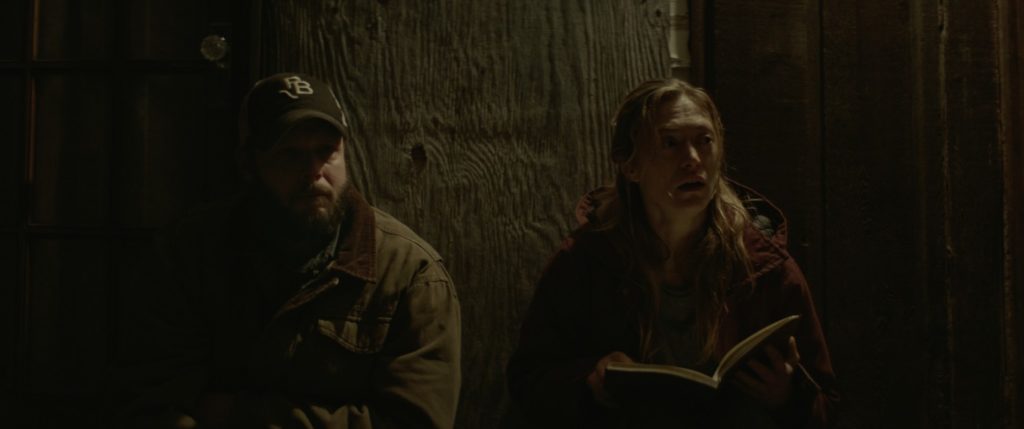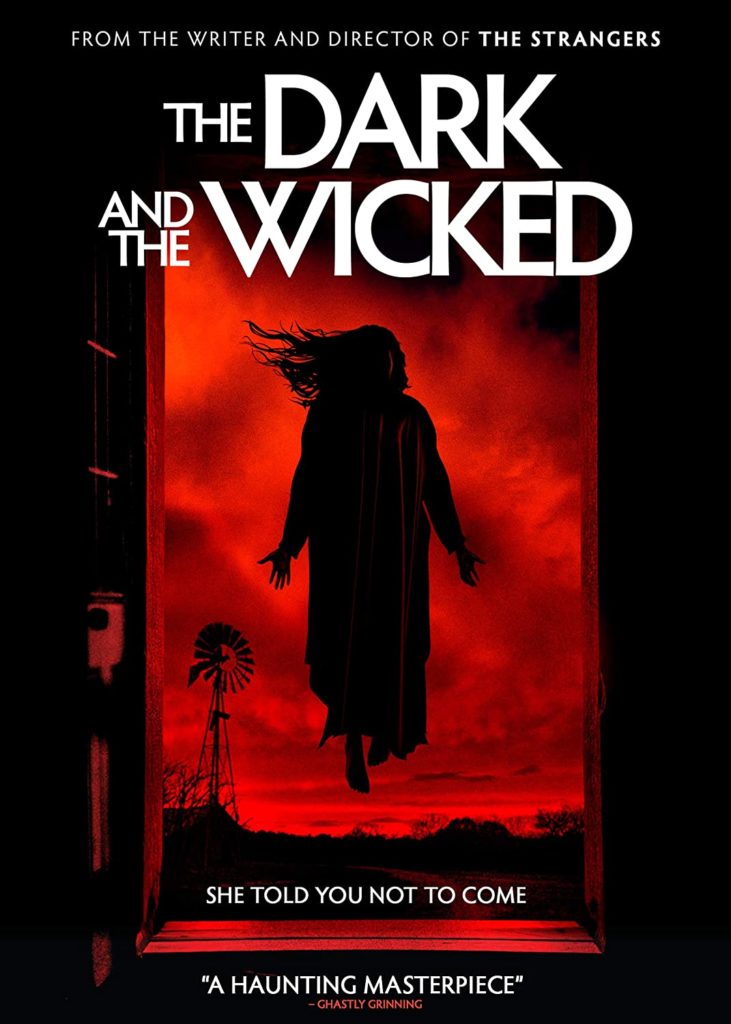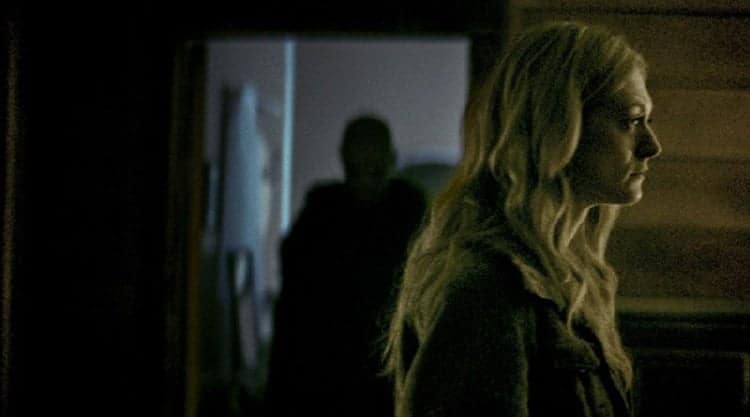
In rural Texas, grown siblings Louise (Marin Ireland) and Michael (Michael Abbott Jr) have returned to the family farm, knowing that their father is close to death. Their arrival is, however, no cause for celebration and the reunion is strained; their mother tells them that they shouldn’t have come at all. Even so, and through their concern for her, Louise and Michael notice that something seems strange about the old place. Here at least they might agree with Mom (Louise Oliver-Touchstone), who has also been hearing things and seeing things on the periphery of her vision. Is this as a result of overweening stress and grief, or something more?
The answer to this, from the matriarch at least, is a resounding ‘yes’, and in her absence, her children try to piece together what has taken place, relying heavily on her old diaries – which talk about a presence, a menacing entity of some kind which has a claim on her and her husband, too. Now Louise and Michael are left with the same ominous phenomena closing in on them, and the not-insignificant issue of what to do with their ailing father. We know little about this brother and sister, beyond the fact that they’ve come from somewhere else back to here, and we can infer that their relationship with their parents has been sparse: The Dark and the Wicked is no character study, but the sense of doom is always tangible.
What the film focuses on is atmosphere, and the film signposts this from the very opening scenes. For example, it denies the viewer clear shots of people’s faces, using shadow, or shifting focus, or macro shots of objects; add to this the frequent use of low light, and you are rarely permitted to get your bearings, or see what the burgeoning horror content is doing to the people in the house (which happens to to be director Bryan Bertino’s own family estate). As a welcome contrast, the outdoor shots are very beautiful, making the best of the film’s rural Texan location and allowing the odd moment of respite.

So the film looks very attractive, and clear care has gone into the framing of its shots. It isn’t always as quiet as it starts out, though. It builds up to a differing, and to an extent competing approach, alternating the ominous elements with sudden shifts in pace which have far more in common with Bertino’s prior work (particular his writing and directing duties on The Strangers in 2008 – there are parallels here). The Dark and the Wicked pulls off some successful shocks and, at least initially, these are a welcome shake-up. A motif is soon established, however; once you have been startled by one figure-who-turns-out-to-be-a-vision-of-evil, you’ll settle down once you realise more are coming, particularly all behaving in a similar way. Thereafter, the movement between ponderous foreboding and fast-edit shock beds in.
The notion of a darkness clustering around a matriarch figure, a rurally-isolated older woman who tries to make sense of her experiences through her own writing, feels so familiar because I reviewed a very similar film called Sator recently; that’s no fault of The Dark and the Wicked of course, but things with the newer release definitely feel like deja-vu in some aspects. Admittedly, Sator is even less clearly-organised around a coherent narrative, but the visuals and atmospherics certainly overlap in a series of ways. Likewise, some of the pitfalls are the same. If you happen to enjoy this kind of relentlessly dour occult horror where its pet scenes take priority over clear, demarcated events on-screen, then The Dark and the Wicked fits the bill: it knows what it is, it unfolds well overall with some effectively creepy scenes and it keeps a careful hold over its strong aesthetic values throughout.
The Dark and the Wicked (2020) arrives on Blu-ray, DVD and digital on 5th July 2021.
